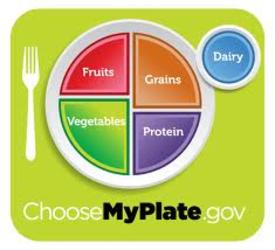Organic -vs- Everything Else??
Options
Replies
-
Organic foods often aren't vegan - they use manure from animals instead of a chemical fertilizer. So I'll take a few chemicals.
Sorry, I'm honestly not trying to poke fun here- I really want to know this. What is the moral basis (if any) for not eating something grown in animal poop?
...because it's taken from the same farming industry that gives us dairy, meat, and eggs. If people were wandering around behind wild animals picking it up, that'd be different.
What about pesticides that kill insects and runoff into the water table and kill and mutate aquatic life?0 -
Sorry, but you are making a lot of assumptions about how and where I buy my beef. The cows grazed on grass that grew wild and naturally on a sustainable farm using only organic imuts. Grass fed and grass finished. I don't live in a rain forrest.One very interesting point in "Omnivore's Dilema" is that in the broad scope, it is impossible for us to eat without causing the death of animals. Even if you decide to eat only plants - what happens to the mice, moles, etc. when you plow the earth to plant the food? So, if your interest is to cause the least number of animal deaths, then eat the largest animal that you can grow for food purposes - which would be the cow.
What do you think the cow ate? And how do you think they got those plants?
The least number of deaths is caused by eating the plants directly - not growing the plants, feeding them to another animal, and then eating that animal.
I really think we are in agreement about the problem - my solution is to eat only from locally grown, grass fed and grass finished beef.0 -
Can you tell me the name of the farm where the plants were grown that you ate during the past six months?0
-
Sorry, but you are making a lot of assumptions about how and where I buy my beef. The cows grazed on grass that grew wild and naturally on a sustainable farm using only organic imuts. Grass fed and grass finished. I don't live in a rain forrest.
I really think we are in agreement about the problem - my solution is to eat only from locally grown, grass fed and grass finished beef.
I made no assumptions whatsoever about your beef. I didn't say a single word about the beef that you personally buy.
Nor are we in agreement about the problem. I feel that the idea that you have the right to keep another creature in captivity in order to eat it - nevermind the cruelty that most farm animals suffer - is wrong. However 'nice' you are about it, it doesn't change the essence of what you're doing. 'Grass-fed' is as bad as 'free-range' - it makes you feel like you're doing something, absolving you of the effort of actually doing anything (general you, not specific you). I have no clue what you think the problem is (specific you).
However, addressing your idea that grass fed beef results in less deaths than a plant based diet; firstly, the sheer number of cattle raised for beef in the US results in greater soil compaction, which then results in more arid conditions. Plants die, and animals die as their food and habitats are destroyed. Grass-fed cows also release more methane, which increases global warming.
They also require a lot more space, and, due to the infertility of the soil caused by the over compaction, and the issues caused by overgrazing, must be moved relatively often, requiring more space. Yes, this is avoidable with certain farming methods, but not on a large scale. Grass-fed beef is only sustainable if only a few people are eating it. If everyone wanted grass fed beef, in the same amounts that beef is currently consumed, there would be next to no habitats left for other creatures.
The fact that they require more space means that more space must be given over to grassland, which causes problems for local wildlife, and, again, results in the destruction of rainforests. Plus, in some areas, grass is not available through the winter, and they are given hay instead - which has been harvested.Can you tell me the farm where the plants were grown that you ate during the past six months?
Can you explain the relevance of your query?0 -
What about pesticides that kill insects and runoff into the water table and kill and mutate aquatic life?
That's a fair point.0 -
The relevance of the question is that if you can't answer the question then you don't know how your plants were raised and therefore you have no idea how many individual animal lives are taken to produce the plants that you eat or the after effects of any chemicals or methods used.0
-
I'm sorry for being a bit of a jerk; I hate argueing (I'm not sure if you thought it was or not, but it felt like it to me). It makes me crabby; I don't know why I can't just be more polite, and keep my mouth shut sometimes.
It's true, I don't. But, for me personally, it would be difficult to impossible to obtain grass-fed, sustainable, beef, and I'd still feel wrong about eating it if I could. Under these circumstances, eating meat results in more deaths.
Even if I could obtain grass-fed sustainable beef, I'd find it extremely difficult to stick to a fully carnivorous diet, as, I think, most humans would, so I'd still consume some grains and plants. It works out about even to replace each pound of beef I would eat with a pound or fruits, grains and vegetables, since they go much further.0 -
In our house we eat as much organic as possible. I'd rather skip the chemicals & pay a little more. But we do more than just eat organic. We don't use harsh chemical soaps & shampoos, cleaners, cosmetics, etc. We try to buy EVERYTHING as chemical free as possible. Our bodies work hard enough as it is, why make them deal with harmful chemicals, too?0
-
Im sure it is healthier to eat all organic but how does one quantify the way it will improve your health. I'd say it is marginal....at best. I think people blow the reports and evidice against processed food WAY out of proportion.0
Categories
- All Categories
- 1.4M Health, Wellness and Goals
- 392K Introduce Yourself
- 43.6K Getting Started
- 259.8K Health and Weight Loss
- 175.7K Food and Nutrition
- 47.4K Recipes
- 232.3K Fitness and Exercise
- 402 Sleep, Mindfulness and Overall Wellness
- 6.4K Goal: Maintaining Weight
- 8.5K Goal: Gaining Weight and Body Building
- 152.8K Motivation and Support
- 7.9K Challenges
- 1.3K Debate Club
- 96.3K Chit-Chat
- 2.5K Fun and Games
- 3.4K MyFitnessPal Information
- 23 News and Announcements
- 998 Feature Suggestions and Ideas
- 2.4K MyFitnessPal Tech Support Questions




